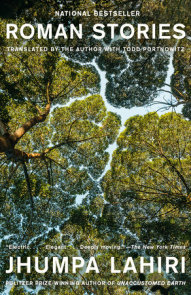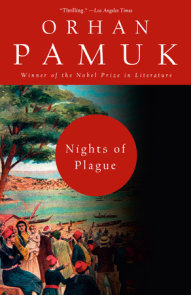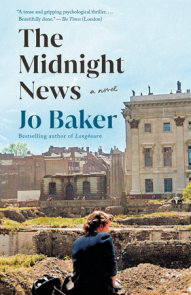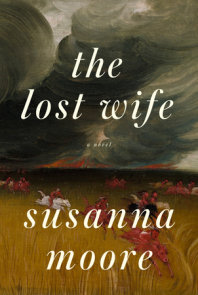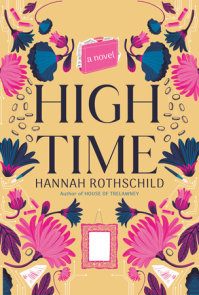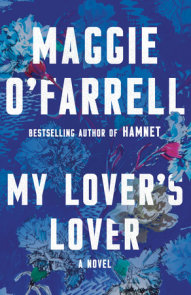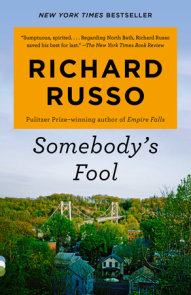READERS GUIDE
The questions, discussion topics, and other material that follow are intended to enhance your group’s conversation of Tania James’s Loot, a sweeping tale of family and country set in early nineteenth-century India and Europe, where, amid the power struggles of colonialism, a young artist grapples with the meaning of self-expression, loyalty, legacy, and love.Questions and Topics for Discussion
1. What are the different factors that go into social class/caste in Mysore at the time we meet the characters? How are these boundaries enforced (and broken) within the different communities of Indians and Europeans?
2. Discuss how Abbas’s creativity is nurtured and stifled by different people throughout his life. As a child, it’s said that “his mind glitters with ideas, yet he has no idea of how much luck he will need” (86)—what kind of “luck” does he receive, and what kind does he miss out on?
3. Discuss the relationship between Du Leze and Abbas. What is the balance between transactional and genuine connection? How does their teacher-student bond transcend the cultural stigmas of the time?
4. Compare the scenes of Tipu’s battle (the sections “The Final Months of Tipu Sultan,” p. 99, and “The Siege,” p. 111). What is different about the point of view, the narration, and even the events of these sections? Who comes out victorious in the conflicts of humans vs. nature, as well as Europeans vs. Indians?
5. What did you make of the circumstances of Tipu’s death? Was it fitting for his stature as a politician and soldier?
6. Tigers are seen in many forms throughout the novel—the carving of the Musical Tiger, the moniker of “Tipu the Tiger,” and the real tigers that are released during the siege (one of which is shot). How does this animal’s fate—“Bahadur Khan limps into a freedom he knew twenty years before, when he was first taken from the forest. His fur mangy, ribs like claws. He gazes up at the unbarred sky, having barely the energy to draw a breath before he is shot” (120)—embody all these tigers’ situations and fates? How do the European conquerors act on their fear of the “other” in the lands they colonize?
7. Thomas Beddicker’s journals offer an inside look at the conditions of a sea voyage during this time (and a relatively pampered one, compared to other groups of people making similar trips). Which seemed worse—the way people were treated during and after the siege, or how the soldiers and other passengers on the ship fared on their way home?
8. Did Abbas make the right choice in staying behind in India after the siege? How might things have been different for him and Du Leze if they had left together? Consider what he says as a boy: “And so he keeps perfecting the enemy he knows and putting off the one he doesn’t” (48).
9. Although they are left to fend for themselves after Du Leze dies, what social constraints limit the activities and even desires of Jehanne and her aunt? In taking over Lucien’s shop with Abbas by the end of the novel, does Jehanne truly find independence?
10. Where does Abbas meet more insult and derision because of his ethnicity—at home or in Europe? What does this suggest about the prevalence of the colonial mindset during this time?
11. Discuss the relationship and tensions between Abbas and Rum. Do they feel more alike, or more different, due to their backgrounds, their affiliations with Tipu, and the ways they moved forward in life beyond India? How is even their discussion of their experiences among themselves restricted?
12. Rum thinks about his relationship with Lady Selwyn: “What could be more right and fortunate than two people finding one another in the twilight of their lives, their bodies too old to be anything but honest?” (196–97). Did you think their love was honest? What was each of them getting out of the situation that was real and what was manipulative?
13. Is Lady Selwyn’s obsession with Tipu and his relics authentic or fetishized? Consider her imaginings when she dons Tipu’s robe: “Here is the person she always wanted, as a girl, to be. Unbound and destined for elsewhere. Feet set apart, fist propped on her hip. Lady Magellan. Flat-chested adventuress . . . a citizen of the world” (244).
14. Why do you think the book is named after the card game that Jehanne and Lady Selwyn play? What forms of “loot” are there in the novel, who owns them, and what is their relative worth?
15. What changes in Abbas during his time at Cloverpoint that he chooses to go after Jehanne over the Musical Tiger during the fire? Would she have done the same for him?
16. The novel takes place over about sixty years—from 1794 to 1859. How did cultural and individual attitudes shift during this time, if at all? What would have been different for Abbas and Jehanne, both marginalized, if they had met five, ten, or more years in the future?
17. Consider your own family’s heritage. What roles might previous generations have played in the machinations of colonialism? Where do similar attitudes, policies, and communities still exist today?
18. What makes the Musical Tiger so special to Tipu, Du Leze, Abbas, Jehanne, and Lady Selwyn? Does this example of politicized art bring people together or separate them—or both?
Suggested Reading
Americanah by Chimamanda Ngozi AdichieThe White Tiger by Aravind Adiga
The East Indian by Brinda Charry
Heart of Darkness by Joseph Conrad
Here Comes the Sun by Nicole Dennis-Benn
Homegoing by Yaa Gyasi
The Lowland by Jhumpa Lahiri
Hamnet by Maggie O’Farrell
The God of Small Things by Arundhati Roy
Cutting for Stone by Abraham Verghese











